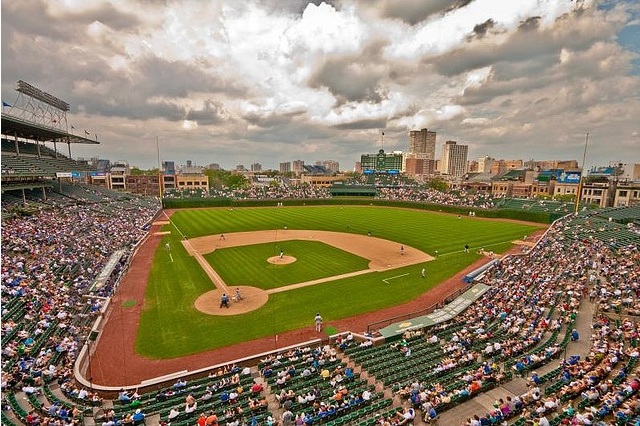Tunney Opposes Parts Of Rahm's "Fenway Plan"
By Chuck Sudo in News on May 8, 2012 2:00PM
44th Ward Ald. Tom Tunney has some issues with Mayor Rahm Emanuel's plan to relax Wrigley Field's landmark status and paving the way for the Chicago Cubs to drum up sponsorship and advertising revenue to finance the rehabilitation of the ballpark the team says is desperately needed.
The plan could raise as much as $150 million in revenue from advertisers and sponsorships from the stadium and surrounding streets. The plan also calls for more concerts and non-baseball sporting events such as football games, and a street fair around the park on game days. Tunney is opposed to closing Sheffield and Waveland on game days and any sponsorship plan that would obstruct the view of the rooftop clubs surrounding the park. Tunney said his reservations on the plan are based on quality of life issues for Wrigleyville residents (in the case of the street closures), and he's looking out for the investments of the rooftop clubs, who coincidentally have raised some serious money for Tunney's campaign fund over the years.
“The rooftops and the owners of Wrigley have a unique partnership. They want to be protected long-term. They have a lot invested. The city has asked them to spend millions to keep their buildings safe. We’ve got to find ways they can both stay in business.“One of the tenets of the landmark ordinance is the view into the residential area. The more signs you put in there, the more you block the view into the neighborhood. We’ll find some appropriate places. But, what I want is long-term peace between small business owners and the big business at Clark and Addison.”
Rooftop clubs currently share 17 percent of their revenue with the Cubs, but their bleachers have looked emptier in the past few years. Tunney said he's open to more negotiations between all parties, open to more night games at Wrigley Field and suggested, after a recent trip to Boston to see the results of the Red Sox' Fenway Plan, the Cubs' long-stalled Triangle Project may be a better option.
